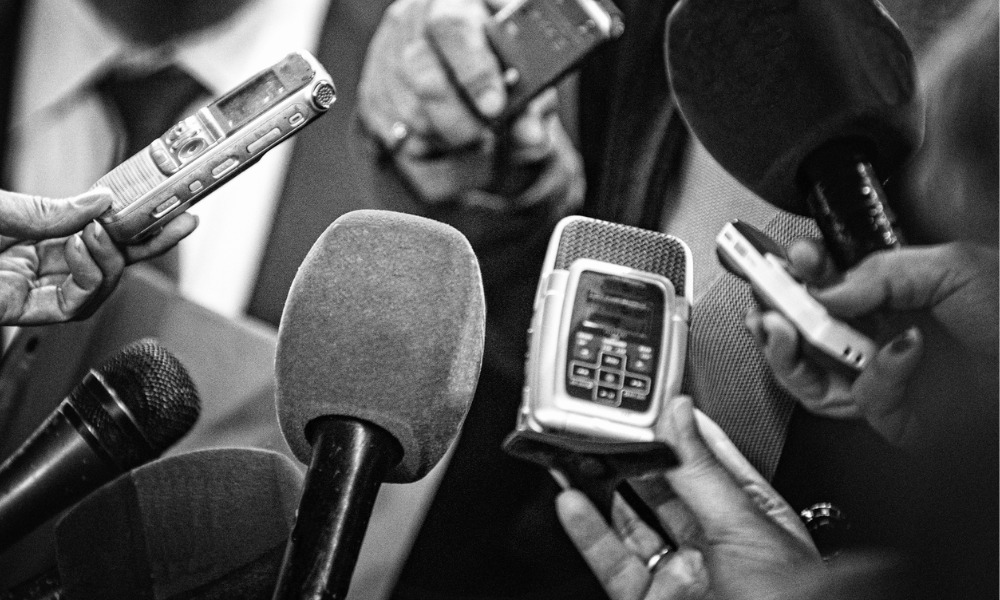‘Attempting to prevent a journalist from documenting a moment of contentious action is impermissible in a country like Canada’

The Canadian Association of Journalists (CAJ) and Canadian Journalists for Free Expression (CJFE) condemn “in the strongest possible terms” the Ontario Provincial Police's (OPP’s) decision to arrest and lay charges against an award-winning Indigenous journalist.
In a press release, the groups note that on Sept. 2, Karl Dockstader, the co-recipient of the 2020 CJF-CBC Indigenous Journalism Fellowship, was arrested and charged with mischief, and failure to comply with a court order.
The incident happened when Dockstader was covering a land dispute between members of Six Nations, the band council and a development company, on land known as the Haldimand Tract. Dockstader was charged after spending half the summer reporting on the ongoing reclamation movement focused on a parcel of land in Caledonia, ON, according to a CBC report.
The arrest bans him from the site under threat of more charges, according to the statement.
“The OPP are well aware that journalists have an established constitutional right to be present and cover matters of public interest,” said Brent Jolly, CAJ president. “Attempting to prevent a journalist from documenting a moment of contentious action is impermissible in a country like Canada. Journalism can never be silenced.”
Arrest
According to the CBC report, Dockstader's last dispatch from the site was a video posted on social media on Aug. 29.
In the afternoon of Sept. 1, Dockster received an email on his work account from an OPP constable who said she needed to speak to him about McKenzie Meadows. He said he phoned the officer who then told him that she intended to charge him with mischief and disobeying a court order.
“I immediately told her I was a member of the media, that I was there chronicling what was happening at the site,” said Dockstader, adding that the constable said he can prove his line of work in a meeting with OPP, according to the CBC report. “I think she made up her mind to press charges and it didn't matter I was a member of the media,” he said.
Third time
The groups note that the arrest is the third time in recent years police have attempted to lay charges against journalists for covering land conflicts between Indigenous people and the Crown.
In March 2020, independent filmmaker Melissa Cox was arrested while covering a land dispute related to the Wet'suwet'en territory, at a railway blockade in New Hazelton, B.C. Charges of mischief and trespassing were thrown out of court in August. Also, in 2016, civil and criminal charges were laid against reporter Justin Brake while he was reporting on Indigenous opposition to a construction project, on Crown land, at Muskrat Falls.
“It is particularly disappointing at this time to see another police force not only exceeding its powers, but undermining the efforts of Canadians and their governments to pursue reconciliation with our First Peoples,” said Phil Tunley, president of CJFE.
In 2019, the Newfoundland and Labrador Court of Appeal issued a landmark decision that reaffirmed that special considerations apply to journalists working in good faith and reporting on matters in the public interest—even when an injunction is in place, or events occur on private property. The case also recognized the significant role the media must play in reconciliation with Indigenous peoples.
In August, the CAJ condemned the attacks against journalists covering anti-mask protests in Quebec City and Montreal in Quebec.
In June, groups of Canadian news workers expressed their anger over how the police in the U.S. treated Canadian journalists, and journalists in general, who were covering the protests which have followed the death in police custody of George Floyd.





